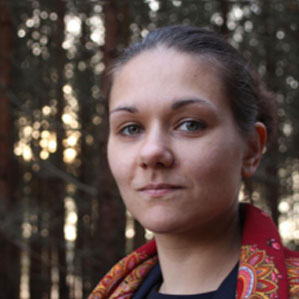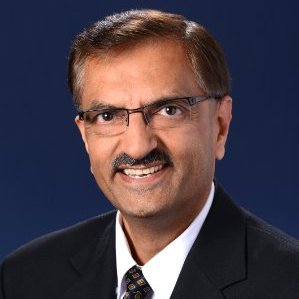Privacy, Internet Freedom and Human Rights
Welcome to the Third Quarter issue of IEEE Standards Education E-magazine, an issue packed with perspectives on privacy, internet freedom and human rights!
It is my pleasure to bring you this issue of the SEC E-Magazine compiled and edited by Ms. Amelia Andersdotter, an expert in the domain of privacy and data protection. Her editorial itself is an educational piece which has made me realize how little I know about these topics, even unable to write a few intelligent words! I may be ignorant about this topic, but I am privileged to be surrounded by the globally renowned experts in the field. My sincere appreciation and thanks to Amelia and her panel of subject matter experts for compiling an exciting issue for us. Happy Reading!
Yatin Trivedi, Editor-in-Chief
Privacy, internet freedom, and human rights are topics which have gained increasing traction in recent years, as we will see in three articles by Prof. Ann Cavoukian, Niels ten Oever, and Lukasz Olejnik PhD. The roles of companies in the global ecosystem of rights protections have been accentuated in both standards development organizations (SDOs) and in intergovernmental settings such as the United Nations (UN).
We are no longer in the situation where privacy and the security of end-users are abstract and difficult problems for which no solution is in sight. Rather, we have advanced to where standard-setting can be a real help to engineers, deployers and implementers in realizing robust protections for private persons and consumers, boosting their confidence in the new technologies that increasingly surround them.
Similarly, technologies are increasingly being recognized for vehicles for the transformation of society. With the rise of global markets, the private sector has been recognized as a bearer for global community values, separate, but equally important, to the prior monopoly on bearing such values enjoyed by nation states.
With the rise of technologies that allow communications between people at great distances from one another, identity management has risen to the forefront of both commercial and human concerns. From Prof. Kim Keechang, we will learn about the particular concerns that arise when geographically delimited standards for identity management do not take into account global opportunities and what global standards exist to provide a remedy. Marcus Wong will also help us understand what happens when tried and tested methods for authentication turn out too onerous for the use-case.
We would be wrong to consider the emerging focus on corporate social responsibility as an abdication by nation states of moral power, however. An increased focus around the world on privacy laws—aimed at protecting individuals’ autonomy, self-determination, and commercial security—and on security, has created real economic pressure on technology companies to consider their impacts on communities.
And while these economic incentives provide a helpful framework for putting people back into the mix of technology design, they come with drawbacks. Or perhaps better-stated backdoors.
The rise of global communications has contributed to what French philosopher Jacques Derrida derided as a breakdown of the grand narrative of 19th-century modernism. What was celebrated in the beginning of the 21st century as a breakdown of the geographic community (the natural unity we, people, feel with other people who are living close to us) in favor of the biographical community (the unity we can perceive with people from all over the world and who share our interests, be they the effective standardization of insulin pumps, the perfect instantiation of a fuzzy network or the ingenuity of signals processing), is now beginning to create alarm.
International concerns about fake news, propaganda and competing descriptions of what a community is, what its values may be, and how communities can co-exist on our pale blue dot, the Earth, is leading to calls for security features that restrict, in particular, free communications. It is the undoing of the biographical community and a regression back into the geographical communities established during modernism.
It leads to some interesting dilemmas for engineers to bear with them.
Few concepts are as burdened by values as the concept of security. Who are we protecting from what? The answer might be that we are protecting an incumbent from innovative start-ups, or a government from its people, or individuals from other individuals, or people from its government. In many situations, we can combine a couple of these objectives, but rarely all of them. They will boil down to choices, and it is up to us as designers and developers to make those choices.
Early designs of many communications standards in widespread use today avoided the penalties of difficult security considerations by overlooking security and favoring other forms of efficiency instead. For instance, the efficiency of being able to transmit larger amounts of data more quickly, or the efficiency of more rapid execution of commands in a processor.
These and other topics of digital rights are given increasing focus through biannual IEEE Security and Privacy symposia and the Workshops on Usable Security (with one of each event organized in North America and the other in Europe), the annual The Workshop on the Economics of Information Security (WEIS), USENIX Enigma and Privacy Enhancing Technologies Symposium (PETS) conferences, covering topics from the depths of technology, to the front-ends that help us use them, and the economics that governs their launch to market.
Technical standards, lacking control mechanisms implied by strong security mechanisms, have until now prioritized flexibility and ease of use in a wide range of situations fostering competitivity and rapid development. Now we are entering into a different time.
It is the success of global communication, and its catering to our basic need as a species to learn and develop, that now brings it into contact with the more serious moral dilemmas of how to uphold human rights, and at whose responsibility and under whose influence. In this issue, we explore some of the solutions – but it is the continued commitment of all engineers that will ensure trade-offs and challenges are made visible to the people who use technologies.
 About this issue’s guest Editor:
Amelia Andersdotter is a former member of the European Parliament and an experienced public speaker and presenter. Her current focus is the understanding of data protection not only as a law, but as a tool for advancing the fundamental principles on which democracies are built. Amelia is consultant with ARTICLE 19, a human rights-focused non-governmental organization that defends and promotes freedom of expression and information.
About this issue’s guest Editor:
Amelia Andersdotter is a former member of the European Parliament and an experienced public speaker and presenter. Her current focus is the understanding of data protection not only as a law, but as a tool for advancing the fundamental principles on which democracies are built. Amelia is consultant with ARTICLE 19, a human rights-focused non-governmental organization that defends and promotes freedom of expression and information.
Yatin Trivedi
Editor-in-Chief, IEEE Standards Education eZine
Member, IEEE-SA Board of Governors
ytrivedi@ieee.org
Yatin Trivedi, Editor-in-Chief, is a member of the IEEE Standards Association Board of Governors (BoG) and Standards Education Committee (SEC), and serves as vice-chair for Design Automation Standards Committee (DASC) under Computer Society. Yatin served as the Standards Board representative to IEEE Education Activities Board (EAB) from 2012 until 2017. He also serves as the Chairman on the Board of Directors of the IEEE-ISTO.
Yatin currently serves as Associate Vice President for semiconductor design services at Aricent Inc. Prior to his current assignment, Yatin served as Director of Strategic Marketing at Synopsys where he was responsible for corporate-wide technical standards strategy. In 1992, Yatin co-founded Seva Technologies as one of the early Design Services companies in Silicon Valley. He co-authored the first book on Verilog HDL in 1990 and was the Editor of IEEE Std 1364-1995™ and IEEE Std 1364-2001™. He also started, managed and taught courses in VLSI Design Engineering curriculum at UC Santa Cruz extension (1990-2001). Yatin started his career at AMD and also worked at Sun Microsystems.
Yatin received his B.E. (Hons) EEE from BITS, Pilani and M.S. Computer Engineering from Case Western Reserve University. He is a Senior Member of the IEEE and a member of IEEE-HKN Honor Society.
